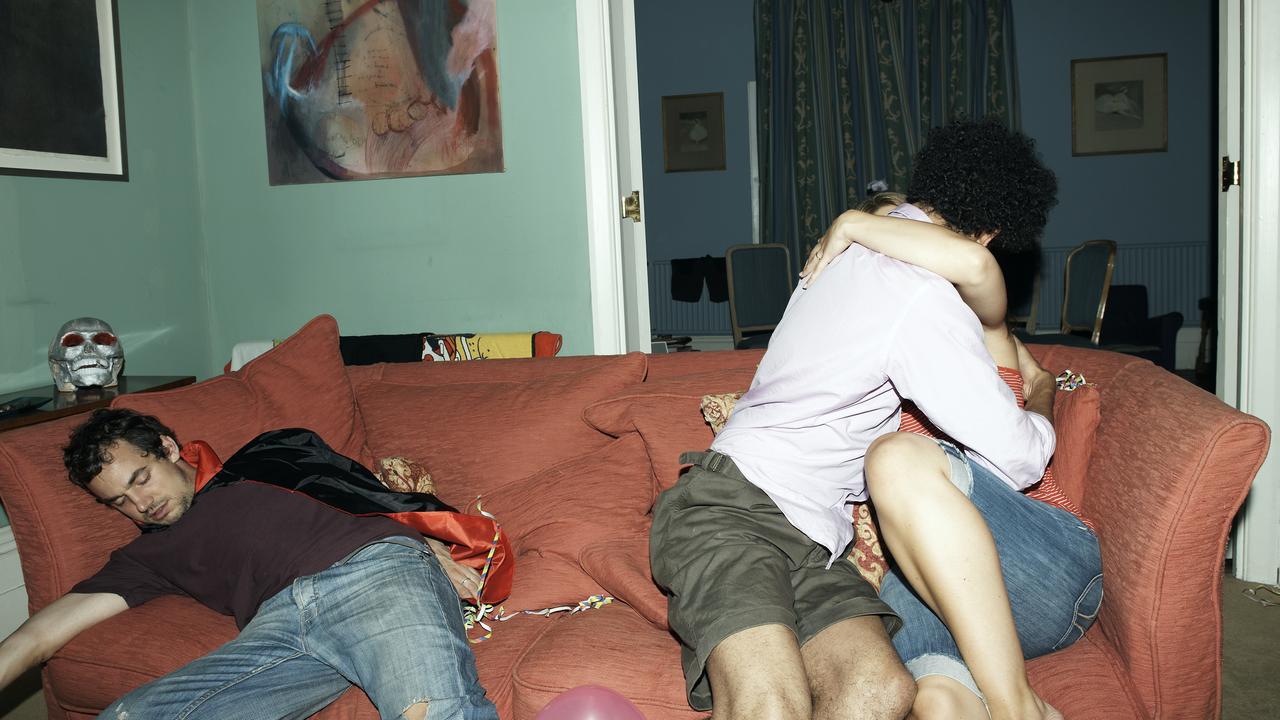Welcome to Sisters In Law, news.com.au’s weekly column solving all of your legal problems. This week, our resident lawyers and real-life sisters Alison and Jillian Barrett from Maurice Blackburn help a man who’s at the end of his tether with noisy neighbours.
QUESTION: I live in inner Melbourne, and my next door neighbours are making my life a living hell. They constantly host late-night ragers, playing loud music until all hours and keeping the neighbourhood awake with their raucous behaviour. We’ve tried calling the police, who give them warnings, but it just keeps happening. Is there anything I can do legally to get my sleep – and my sanity – back? – Carl, Vic
ANSWER: It’s an offence to make unreasonable noise from a residence, so it’s likely that your neighbour’s late-night parties are not allowed.
Every state has laws that govern noise levels. In Victoria, there are different rules and regulations depending on the local council area you live in.
The best way to resolve a dispute is to have a face-to-face chat, as sometimes your neighbour may not know the noise is bothering you. Anonymous notes left in their letterbox or payback responses are likely to fuel the dispute.
Face-to-face
When raising your concerns with your neighbours, you should be constructive and suggest ways to solve the problem. For example, you could ask them to move to another part of their premises, turn down their stereo, or take the party elsewhere.
You could also let them know of steps you’ve taken to try and avoid the noise, such as using earplugs, and explain why that measure failed.
Once you’ve spoken to your neighbours, if they don’t turn the volume down then excessively loud party noise is a matter for the police. Once the disturbance is reported, the police will attend and have the power to stop the noise for a set period of time.
Fines
If the noise doesn’t stop the police can issue on-the-spot fines, require your neighbour to answer to the local court and confiscate the equipment causing the noise.
The City of Melbourne can investigate music coming from a residence, provided it’s not an isolated incident, so you should complete a “nuisance log sheet” for at least two weeks. If your complaint ultimately ends up in court, these log sheets will be used as evidence.
Local council
Residential noise enforcement officers from your local council can investigate and decide whether noise is unreasonable. Factors they consider include:
• volume and intensity
• what the noise sounds like
• time and place of the noise
• how long the noise continues
• how often the noise occurs or whether the noise is unreasonable under the Environment Protection Regulations 2021.
Environment Protection Regulations 2021
It will usually be unreasonable to hear your neighbour’s music from your lounge room and/or bedroom before 7am Monday to Friday, after 10pm Sunday to Thursday, before 9am on weekends and public holidays, and after 11pm on Friday and Saturdays.
It may assist if your other neighbours also make a complaint at the same time and are consistent with the details you have provided.
Payback
Don’t engage in any payback responses like blasting your own music early in the morning – this will likely just escalate the situation.
Renters
It’s not clear if your neighbours own the property, or are renting.
If your neighbours are renting, and the problem continues, you can make a complaint about the noise to their landlord or real estate agent.
Most residential tenancy agreements provide rules about noise and respecting their neighbours’ right to peace, comfort and privacy.
Any complaint you make to the landlord or real estate agent should be in writing and you should keep a copy.
They are not obliged to take action following your complaint, but they could – if they choose to – give a warning to your neighbours that they are in breach of their lease agreement.
If your property has an owners’ corporation, it must have a complaints process. The owners’ corporation can help you communicate with your neighbour to resolve the problem.
Dispute settlement
The Dispute Settlement Centre of Victoria can also help you resolve residential noise problems. Your neighbour will have to agree, and you both will be required to discuss the issue in the presence of a mediator. This is a free service.
Legal action
Finally, you may also take legal action yourself under the Public Health and Wellbeing Act 2008 (PHW Act) or Environment Protection Act 2017 (EP Act). You should obtain specific advice from a solicitor if you’re thinking of doing this.
This legal information is general in nature and should not be regarded as specific legal advice or relied upon. Persons requiring particular legal advice should consult a solicitor. If you have a legal question you would like Alison and Jillian to answer, please email stories@news.com.au. Get more from Alison and Jillian on their Facebook page.
